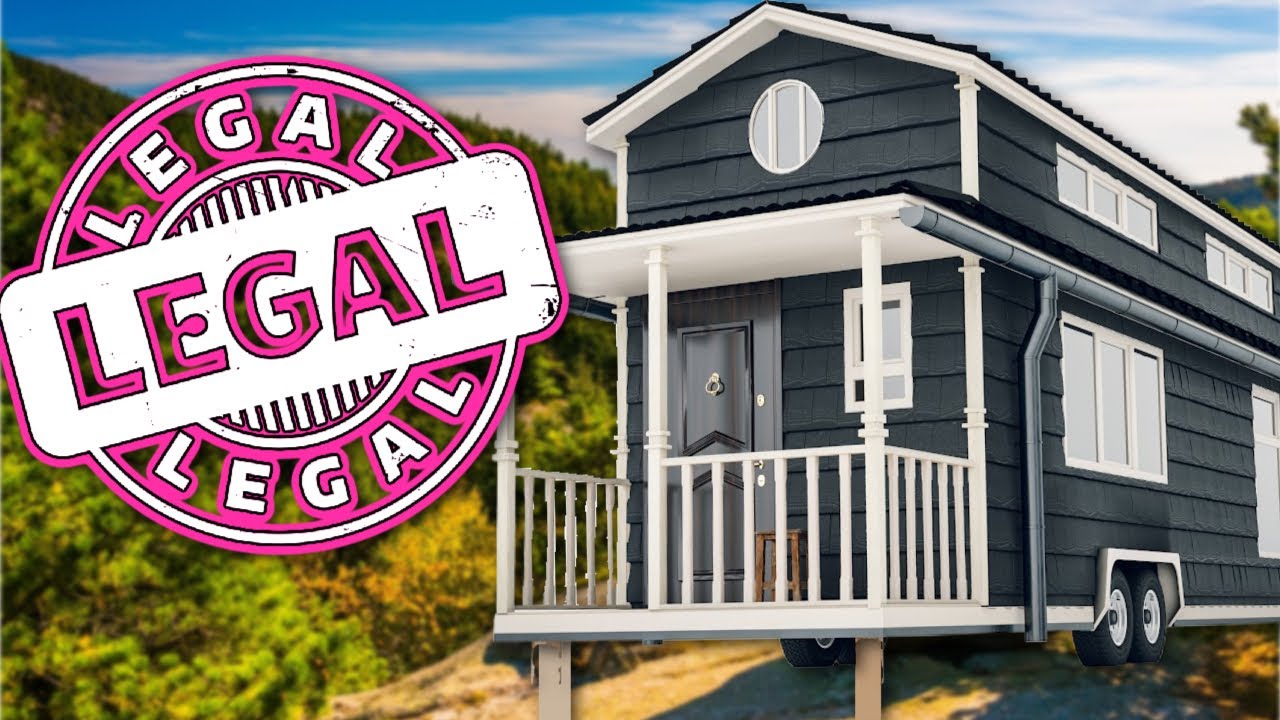Introduction to Tiny Homes in Rhode Island
Tiny homes have emerged as a popular housing trend across the United States, offering a sustainable and cost-effective solution to the ever-increasing housing crisis. These small, compact dwellings have gained attention for their minimalistic design, environmental impact, and affordability. Rhode Island, known for its picturesque landscapes and tight-knit communities, has seen a growing interest in tiny homes. However, before embarking on the journey of building or living in a tiny home, it is crucial to understand the legal framework surrounding them in Rhode Island.
Understanding the Legal Framework in Rhode Island
Rhode Island’s legal framework for tiny homes is a combination of zoning laws, building codes, and regulations. These laws are designed to ensure the safety, livability, and compliance of residential structures, including tiny homes. Local municipalities play a significant role in determining the legality of tiny homes within their jurisdiction, often with their own specific regulations.
Zoning Laws and Tiny Homes in Rhode Island
Zoning laws dictate how land can be used, including residential, commercial, and industrial purposes. In Rhode Island, zoning regulations can vary from town to town, which means the permissibility of tiny homes can differ as well. Some areas might have specific zoning ordinances that allow tiny homes, while others may have restrictions or exclude them entirely. It is essential for aspiring tiny home owners to research the zoning laws of their desired location before proceeding with their plans.
Building Codes and Regulations for Tiny Homes
Building codes and regulations ensure the safety and quality of structures by establishing minimum standards for construction. In Rhode Island, tiny homes are typically subject to the same building codes as traditional houses. These codes cover crucial aspects such as structural integrity, plumbing, electrical systems, and fire safety. Compliance with these codes is crucial for obtaining permits and ensuring the habitability of a tiny home.
Permits and Licensing for Tiny Homes in Rhode Island
Before constructing or placing a tiny home in Rhode Island, individuals must obtain the necessary permits and licenses. The specific requirements for permits may vary depending on the location and size of the tiny home. These permits generally involve submitting detailed construction plans, structural engineering reports, and receiving inspections throughout the building process. It is advisable to consult with local building officials to ensure compliance with all permitting requirements.
Rhode Island’s Approach to Tiny Home Communities
Rhode Island has started recognizing the benefits of tiny home communities as a solution to affordable housing and sustainable development. Some municipalities have shown openness to allowing tiny home communities to address the housing needs of low-income individuals or those seeking an alternative lifestyle. Currently, there are a few tiny home communities in Rhode Island, offering a sense of community and shared resources for residents.
Challenges Faced by Tiny Home Owners in Rhode Island
Despite the growing interest in tiny homes, there are challenges faced by their owners in Rhode Island. Zoning restrictions often pose a significant obstacle, as many areas have not explicitly addressed tiny homes in their regulations. Additionally, building codes designed for traditional houses can make it challenging to meet requirements for tiny homes. The lack of available financing options and limited infrastructure for tiny homes also present hurdles for prospective owners.
Advocacy and Support for Tiny Homes in Rhode Island
Advocacy groups and individuals in Rhode Island are actively working towards legalizing and promoting tiny homes. These advocates aim to raise awareness about the benefits of tiny homes, push for policy changes, and provide resources for those interested in pursuing tiny home living. Through grassroots efforts, they hope to change public perception and create more opportunities for tiny homes in Rhode Island.
Recent Developments in Rhode Island’s Tiny Home Legislation
Rhode Island has seen recent developments in its tiny home legislation. Efforts are underway to revise zoning laws and building codes to accommodate tiny homes. In some instances, municipalities are exploring pilot programs or temporary zoning exemptions to test the viability of tiny homes in their communities. These progressive steps indicate a growing recognition of the need for affordable housing options and sustainable living alternatives in Rhode Island.
Case Studies: Successful Tiny Home Projects in Rhode Island
Despite the legal challenges, there have been successful tiny home projects in Rhode Island. Notable examples include the "West Bay Cottage" community in Warwick, offering affordable housing options for low-income individuals. Another successful project is the "Bird’s Nest Village" in North Kingstown, which provides a sense of community and shared resources for its residents. These projects demonstrate the potential and positive impact of tiny homes in Rhode Island.
Pros and Cons of Tiny Homes in Rhode Island
Tiny homes come with both advantages and disadvantages in Rhode Island. Pros include affordability, reduced environmental impact, and the potential to address the affordable housing crisis. Additionally, the compact size promotes a more minimalist and sustainable lifestyle. However, challenges such as zoning restrictions, building code compliance, and limited infrastructure can make the journey of tiny home ownership more complex.
Conclusion: The Future of Tiny Homes in Rhode Island
The future of tiny homes in Rhode Island remains promising but uncertain. Advocacy efforts and recent developments in legislation indicate a growing acceptance and recognition of the benefits they offer. However, overcoming zoning restrictions and adapting building codes to accommodate tiny homes will be critical for their continued growth. With an increased focus on affordable housing and sustainable development, Rhode Island has the potential to become a thriving hub for tiny home living.





